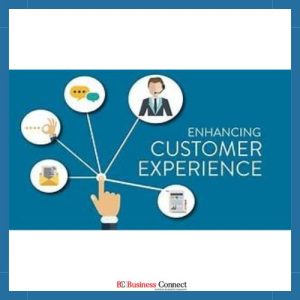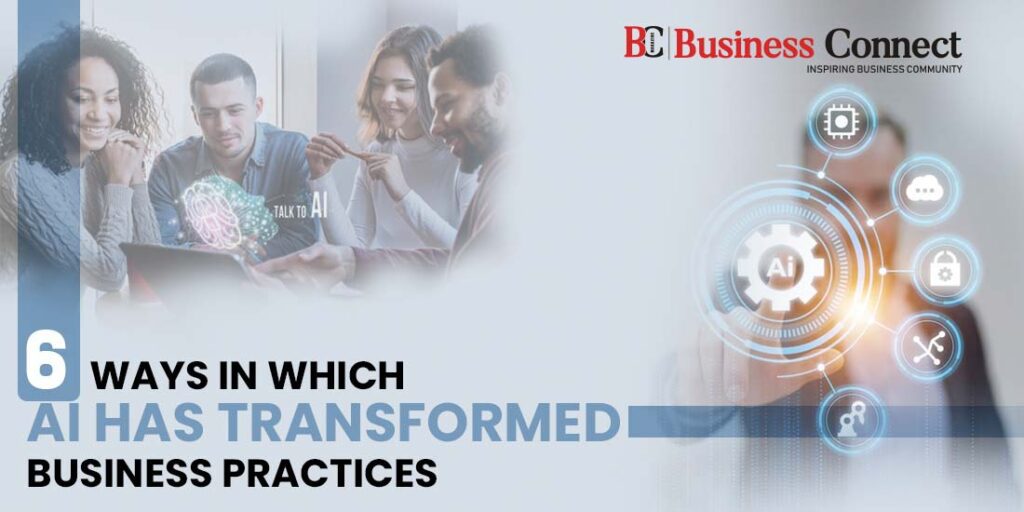6 ways in which AI has transformed business practices
In the past 5 years, Artificial Intelligence (AI) has seeped into the business world rapidly and catalyzed a monumental shift in the way businesses operate. What was once perceived futuristic has become a pivotal component across diverse sectors, redefining conventional business practices and fostering enterprises such that one can thrive in an era defined by innovation and technological prowess. Here are six ways with which we would walk you to many ways in which AI has changed the way businesses operate based on our intensive research:
Enhanced Decision-Making and Predictive Analytics

One of the most significant advantages AI offers to businesses is its ability to process vast amounts of data at lightning speed. Through Machine Learning algorithms and advanced analytics, AI empowers organizations to make informed decisions driven by predictive insights. Whether it’s forecasting market trends, optimizing supply chains, or identifying consumer behavior patterns, AI-driven analytics supports businesses with out-of-the-box foresight that could turn the tide to one’s favour.
Revolutionizing Customer Experience

AI has revolutionized how businesses engage with their customers. Chatbots powered by AI deliver personalized and efficient customer service round the clock, enhancing user experience and satisfaction. Moreover, AI algorithms analyze consumer behavior, preferences, and feedback to tailor product recommendations and marketing strategies, leading to increased customer engagement and loyalty.
Optimizing Operations and Efficiency
The integration of AI in business operations has ushered in unparalleled efficiency. From automating repetitive tasks to streamlining complex processes, AI-powered solutions optimize workflows across various departments. For instance, in manufacturing, AI-driven robotics and automation ensure precision and speed, enhancing productivity and reducing errors.
Risk Management and Fraud Detection
AI’s capability to detect patterns and anomalies is invaluable in risk management and fraud detection. Financial institutions leverage AI algorithms to identify fraudulent transactions, mitigating risks and safeguarding against cyber threats. Also, the predictive power of AI allows businesses to proactively identify potential risks, eventually allowing them to resolve timely interventions and risk mitigation strategies.
Facilitating Innovation and R&D
AI serves as a catalyst for innovation and research and development (R&D). It expedites the exploration of new ideas, simulations, and experiments, significantly reducing the time and resources required for innovation. AI-driven simulations and predictive modeling aid in developing and testing new products, accelerating the pace of innovation.
Challenges and Ethical Considerations
While AI presents a multitude of benefits, it also poses challenges, including data privacy concerns, bias in algorithms, and ethical implications. All over the globe, AI is becoming increasingly integrated into business processes, where transparency, ethical use of data, and safeguarding against biases remains imperative and keeps a business afloat.
The inclusion of Artificial Intelligence into the business landscape marks a remarkable shift in the history of mankind that empowers enterprises to innovate, optimize, and adapt in an ever-evolving market. Embracing AI is not merely a choice but a necessity for businesses striving to remain competitive, agile, and responsive to the changing demands of the modern world. We hope that you’ll gain major insights from this article and familiarize yourself with the power it has to revolutionize our future.



